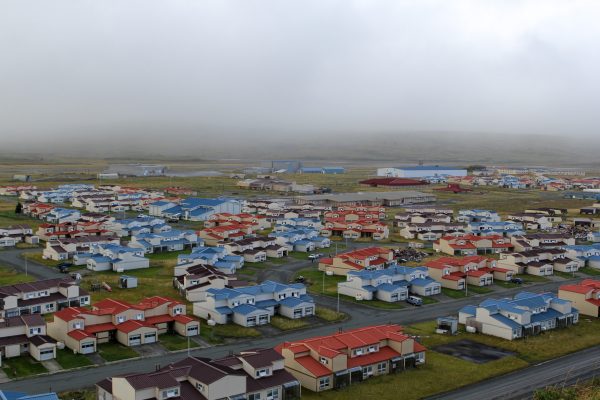
Nearly nine months after Adak reported its first case of COVID-19, the nation’s westernmost city is seeing a spike in infections.
City Manager Layton Lockett said the city has nine new cases of the virus — all of them visitors to the remote island. This marks the first time the virus has reached the community of roughly 100 people since they recorded their first case last December.
Lockett said the city is investigating the outbreak along with the local school district and Eastern Aleutian Tribes, the local medical provider.
“What we wanted to ascertain was how far it has spread and the impact to the unvaccinated portion of the community, which I believe is just the children that are ineligible to receive vaccinations at this point,” he said.
RELATED: Alaska’s largest hospital now rationing care due to COVID surge
Lockett said the majority of eligible residents in Adak are vaccinated. Medical staff will continue to test locals this week to figure out if the virus has spread to the community, he said.
“Our community members have decided that they do want the vaccine and they have it,” he said. “I think that has been a positive aspect for us and hopefully we’ll find out if that has helped us with the impact of this outbreak or not.”
Since the Pentagon closed a large naval airbase on the island in the late 1990s, Lockett said there are only a few reasons non-locals travel to the Aleutian community. Adak serves as a transfer point for fishermen on boats headed out west. It also attracts tourists looking to hunt caribou or go bird watching, as well as officials conducting environmental remediation projects.
Lockett did not say why the group of people who tested positive traveled to the island or if they are vaccinated.
To curb the spread of the virus, city leaders decided to mandate masks and to limit access to City Hall.
“It’s really hard at this point to implement travel measures — like the travel applications we’ve had — because there’s a large administrative burden,” Lockett said. “And you really have to have an enforcement component, and we’re really hampered with having no village public safety officer or police force to help implement that.”
He said the city is still trying to understand how far the virus has spread to determine if additional safety measures are needed.
[Sign up for Alaska Public Media’s daily newsletter to get our top stories delivered to your inbox.]
The recent cases have highlighted that the pandemic isn’t over, he said, and that the community needs to remain vigilant.
He said Adak has a health clinic with just one provider and one support staff.
“What we’re ultimately trying to prevent is a medevac that is COVID-related to a place where they may or may not be able to get care because the other facilities are filling up,” he said. “That’s a big issue. We don’t have ventilators — just like a lot of other small communities. And do we see that day where patients are turned away from emergency care because there is no space available? Then what? That truly is a fear.”




